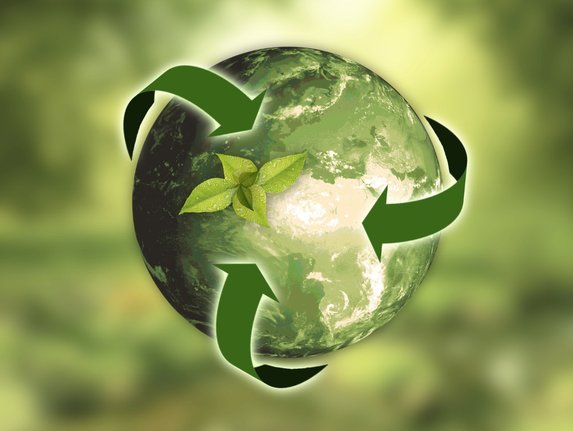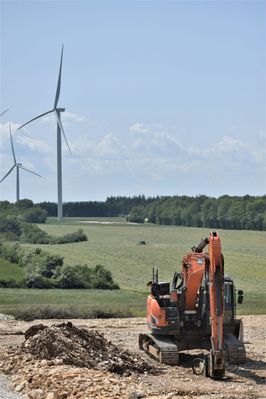Sustainability and Life Cycle Assessment (LCA)
5-Days Online Workshop
Upcoming round: Oct. 2025
Why
Learning about LCA and Sustainable Manufacturing?
LCA analysis is crucial for assessing the environmental impact of products throughout their life cycle, enabling sustainable design, reducing resource use, and informing regulatory compliance and corporate sustainability efforts. It is applicable in product development, policy-making, supply chain management, and environmental reporting.
Target participants for this training are
- Environmental professionals and consultants.
- Engineers and sustainability practitioners.
- Students and academics in environmental science and related fields.
- Anyone interested in understanding and applying LCA in their work.
Workshop Description
Click here to view the Training Agenda
This intensive 5-day online course offers a comprehensive and practical introduction to Life Cycle Assessment (LCA), a critical tool for assessing the environmental impacts of products and processes to optimize production and manufacturing to be sustainable while minimizing the negative environmental impacts.
This workshop is Designed for professionals and students in environmental science, engineering, and sustainability fields, the course provides a detailed exploration of LCA principles, methodologies, and applications.
Circular Economy and EIA
LCA evaluates the potential environmental impacts of new projects, products, or processes. LCA helps evaluate the environmental benefits of circular economy strategies, such as recycling, reuse, and remanufacturing.
Environmental Policy and Regulation
Governments and regulatory bodies use LCA to inform environmental policies, regulations, and standards. LCA is often used as a basis for environmental labeling schemes (like eco-labels) that inform consumers about the environmental impacts of products.
Resource and Energy Efficiency
LCA identifies areas where energy and resource use can be optimized, leading to more efficient and sustainable processes. It helps in identifying waste reduction opportunities throughout the product life cycle.
Meet The
Moderator
Kumar is an experienced Research Associate at the US Department of Agriculture for Forest Products Laboratory, Statistics, Life Cycle Analysis, and Economics Research
Workshop Highlights
- The online training will extend over 5 weekends (Saturdays and Sundays), totaling 12–15 hours.
- Practical tutorials, Real-world case studies, and practical examples.
- Live interactions with a moderator, offering participants the opportunity to ask questions and engage in extended discussions.
- Real policy modeling scenarios, findings, and
recommendations will be provided, which can be utilized in reports, white papers, and policy briefs.
- Registered trainees will have the opportunity to suggest policy areas of interest via a post-registration survey. These suggestions will be taken into consideration when preparing the practical tutorials.
Objectives
- Understand the history and evolution of LCA.
- Learn the key terminology and flow chart conventions used in LCA.
- Master the phases of LCA, including Goal and scope Definition, Inventory Analysis, and Impact Assessment.
- Develop practical skills in the mathematics and computational aspects of LCA.
- Explore advanced topics such as multi-functionality, allocation methods, and recycling.
- Gain hands-on experience through exercises, case studies, and practical examples.
Agenda
Weekend 1:
Day 1 - Introduction and Goal & Scope Definition
- Introduction to LCA: History, current state, and future developments.
- Glossary of LCA terms and flow chart conventions.
- Goal and Scope Definition: Introduction to ISO standards, goal setting, and scope definition, including functional units.
Day 2 - Inventory Analysis and Mathematics of LCA
- Overview of Inventory Analysis: Economic and environmental flows, unit processes, cut-offs, and system boundaries.
- Introduction to the mathematics of LCA: Scaling factors, vectors, matrices, and creating flow charts.
Weekend 2:
Day 1 - Advanced Mathematics and Multi-Functionality
- Advanced mathematical concepts in LCA: Scaling, equations, multi-functionality, allocation, and recycling.
- Practical exercises in goods wastes and cut-offs, and impact assessment.
Day 2 - Multi-Functionality and LCIA
- In-depth exploration of multi-functionality: Definitions, typologies, solutions, and specific cases like recycling.
- Introduction to Life Cycle Impact Assessment (LCIA): Definitions, classification, characterization, and practical applications.
Weekend 3 :
Day 1 - LCIA and Life Cycle Interpretation
- Advanced topics in LCIA: Normalization, weighting, and practical applications.
- Life Cycle Interpretation: Procedural and numerical approaches, sensitivity and uncertainty analysis.
Registration
Fees (10% Group Discount for teams of 3 or more)
Category 1: Public Officials, and researchers affiliated with Gov. organizations: 2320 Euros
Category 2: Academic Staff and independent consultants: 1100 Euros
Category 3: Postgraduate students: 650 Euros
Discounted Fees: Participants from the M&S Research Hub list of developing countries
Category 1: Public Officials, and researchers affiliated with Gov. organizations: 800 Euros
Category 2: Academic Staff and independent consultants: 580 Euros
Category 3: Postgraduate students: 390 Euros
Package
1- Attending all the online interactive Sessions
2- Receiving comprehensive course materials, including literature, slides, codes, etc.
3- Participants will have access to the recording video of the live sessions for three months.
4- Upon completion of the training, participants will be awarded a certified certificate of enrollment.






